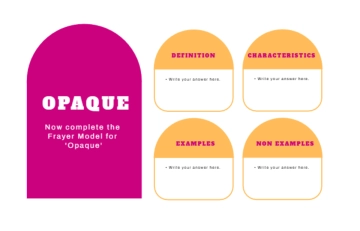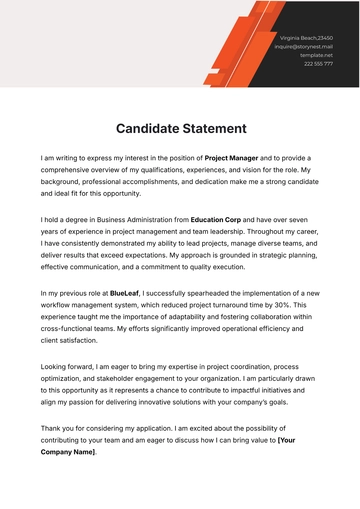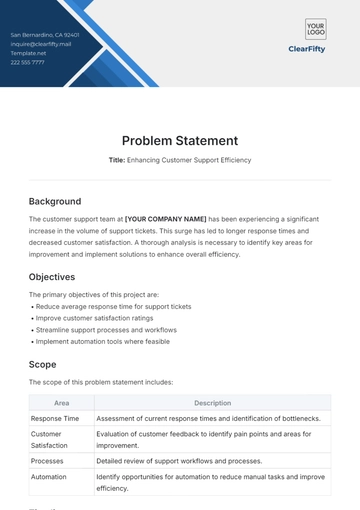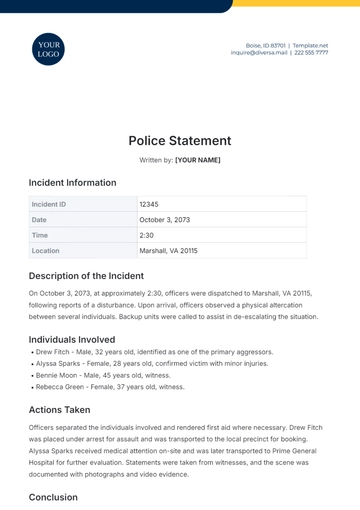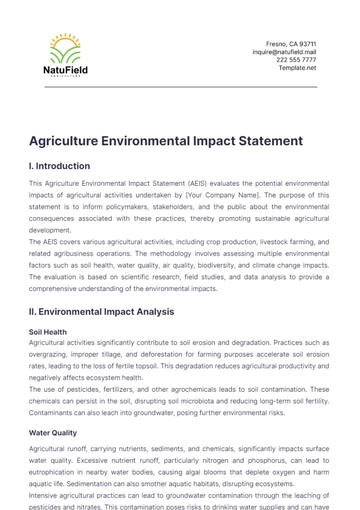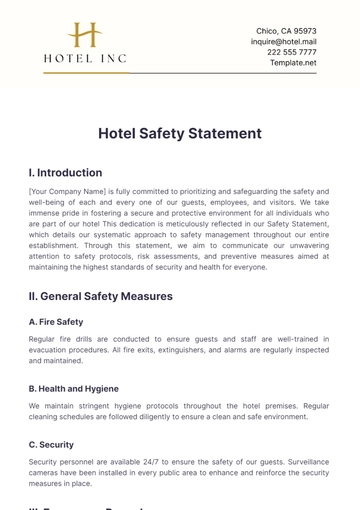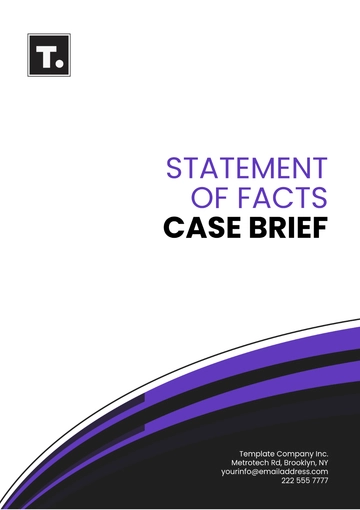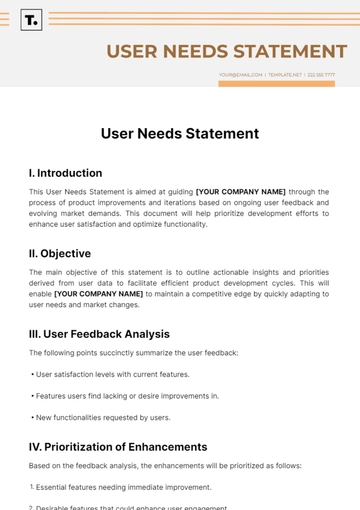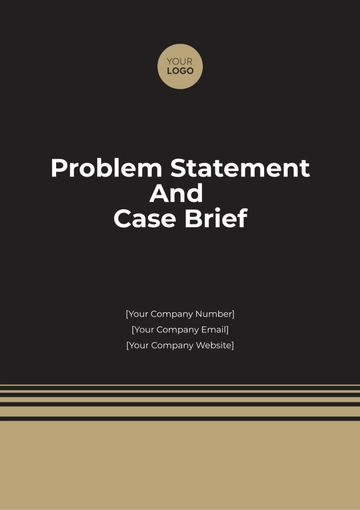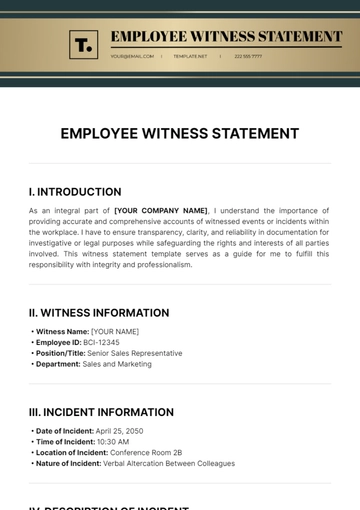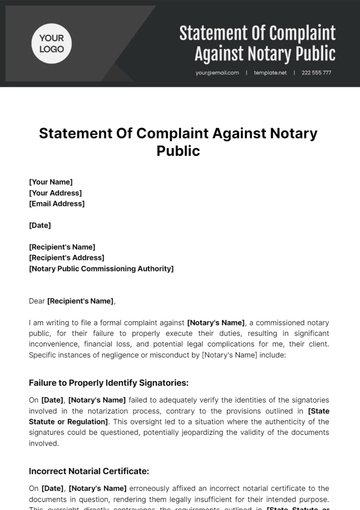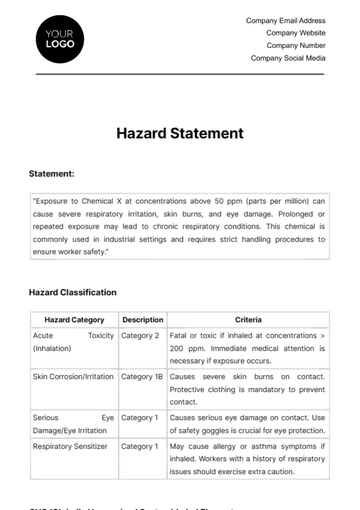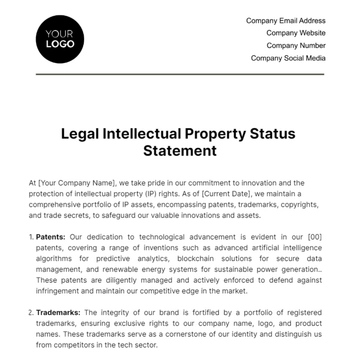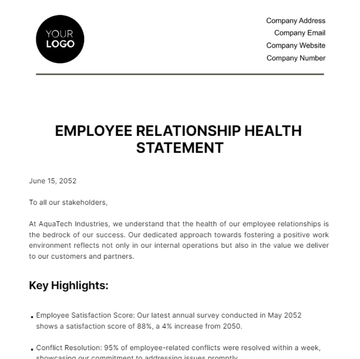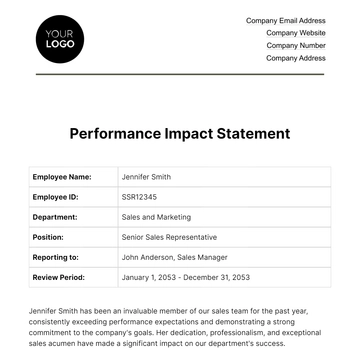Free Problem Statement And Case Brief
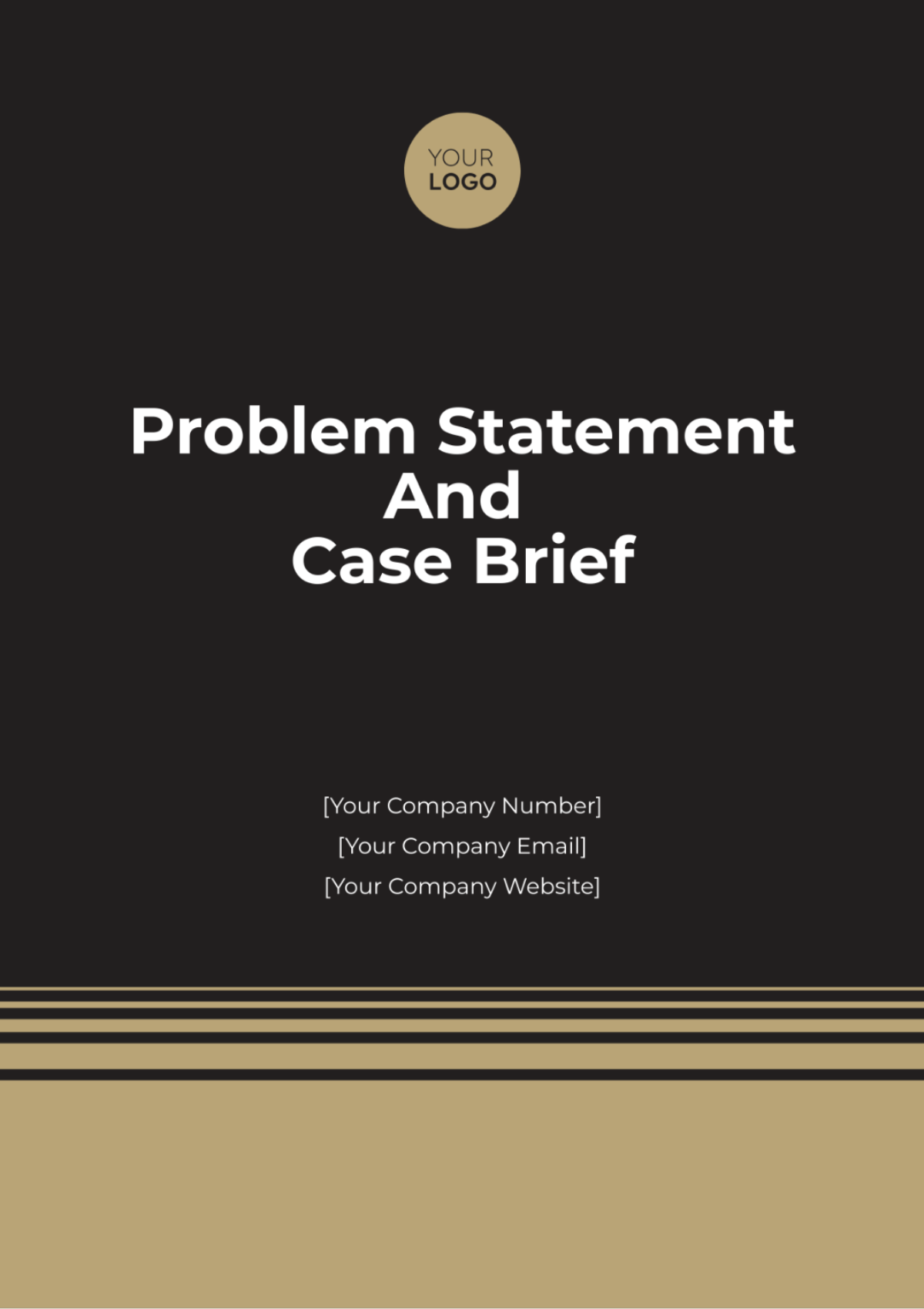
I. Case Background
[Plaintiff], represented by [Grayson & Associates Law Firm], alleges that [Defendant], represented by [Atlas Legal Solutions], engaged in fraudulent misrepresentation in the sale of property. On the other hand, [Defendant] contends that the alleged misrepresentation was a misunderstanding and not intentional.
II. Objectives
To provide a comprehensive overview of the [Case Title] case.
To analyze the legal issues involved and the arguments put forth by both parties.
To evaluate the potential implications of the court's decision on real estate law.
III. Problem Statement
Should the court rescind the property sale contract between [Plaintiff] and [Defendant] due to alleged fraudulent misrepresentation?
IV. Facts
[Plaintiff], represented by [Ms. Avery Grayson], entered into a contract with [Defendant], represented by [Mr. Lucas Atlas], for the purchase of a residential property located at [456 Oak Avenue].
During negotiations, [Mr. Atlas] represented that the property had no history of flooding.
After closing the sale, [Ms. Grayson] discovered that the property had a history of severe flooding, which [Mr. Atlas] failed to disclose.
V. Procedural History
[Ms. Grayson] filed a lawsuit against [Mr. Atlas] in the [Circuit Court of Rivertown], alleging fraudulent misrepresentation and seeking rescission of the property sale contract.
VI. Legal Issues
Whether [Mr. Atlas's] representation of the property's flood history constitutes fraudulent misrepresentation.]
Whether [Ms. Grayson] is entitled to rescind the property sale contract based on Mr. Atlas's alleged misrepresentation.
VII. Arguments
[Ms. Grayson] argues that [Mr. Atlas] knowingly misrepresented the property's flood history to induce the sale and that she relied on this misrepresentation to her detriment.
[Mr. Atlas] contends that he was not aware of the property's flood history at the time of the sale and that any misrepresentation was unintentional.
VIII. Applicable Laws
The doctrine of fraudulent misrepresentation requires a false statement of fact, made knowingly or recklessly, with intent to induce reliance, and actual reliance by the plaintiff to his detriment.
Rescission of a contract is a remedy available for fraudulent misrepresentation, allowing the injured party to cancel the contract and restore the parties to their pre-contractual positions.
IX. Court Ruling
The [Circuit Court] ruled in favor of [Ms. Grayson], granting rescission of the property sale contract based on [Mr. Atlas's] fraudulent misrepresentation. The court found that [Mr. Atlas] knowingly misrepresented the property's flood history, which induced [Ms. Grayson] to enter into the contract.
X. Conclusion
The case of [Grayson v. Atlas] highlights the importance of full disclosure in real estate transactions and the consequences of fraudulent misrepresentation. The court's ruling serves as a reminder to parties to act in good faith and disclose all material facts when entering into contracts.
Respectfully submitted,
[Your Name]
[Your Email]
- 100% Customizable, free editor
- Access 1 Million+ Templates, photo’s & graphics
- Download or share as a template
- Click and replace photos, graphics, text, backgrounds
- Resize, crop, AI write & more
- Access advanced editor
Discover the ultimate legal aid with Template.net's Problem Statement And Case Brief Template. Our editable and customizable template simplifies case analysis, ensuring clarity and coherence. Crafted for legal professionals, it's effortlessly editable in our AI Editor Tool, empowering efficient briefing for every case. Upgrade your legal arsenal today.
